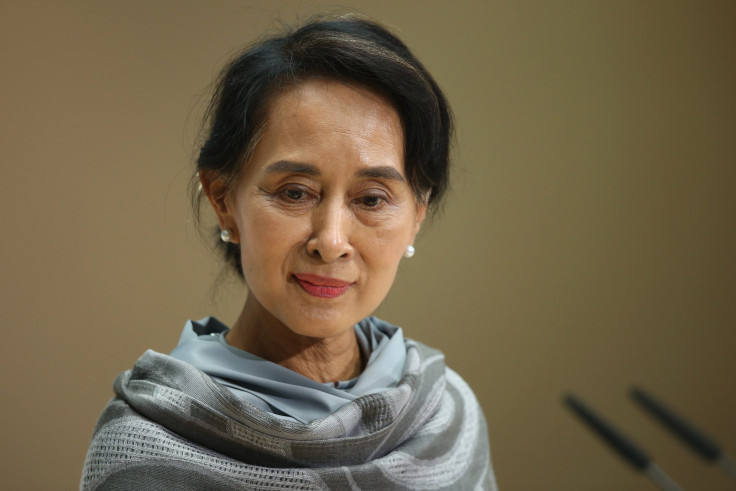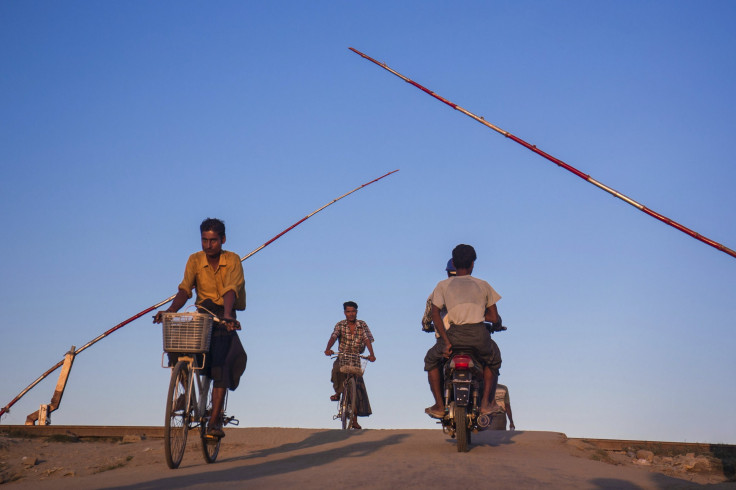China Takes Pragmatic Approach To NLD Victory In Myanmar

SHANGHAI -- China has praised the smooth running of Myanmar’s elections, and said before the National League for Democracy’s (NLD) victory was confirmed Friday that it was willing to work with whichever party won, to continue to develop bilateral ties. Given that China has been Myanmar’s biggest trade and investment partner for many years that would seem only natural.
But in practice the NLD’s victory raises some awkward issues for Beijing, not least Aung San Suu Kyi’s long-time advocacy of democracy, which China says is not appropriate for its own people. And there are also questions over Myanmar’s increasingly close relations with the U.S.
Beijing has a long history of good relations with Myanmar’s military regime: China was one of the few countries that backed the regime during its most repressive period, when Suu Kyi was held under house arrest. Yet, in the past four years, even former general President Thein Sein has turned away from China. As relations with the West improved, Myanmar suspended a major Chinese-built hydro-electric dam project at Myitsone on the Irawaddy river, and a Chinese-backed copper mine project -- to Beijing’s irritation.

Part of the motivation for these moves was public dissatisfaction at China's exploitation of natural resources in areas of Myanmar close to the Chinese border. Beijing has also alienated some in the country by its support for two ethnic rebel groups, the Kachin Independence Organization and the United Wa State Army, which recently refused to sign a ceasefire with the government.
For Beijing even some aspects of the election itself have been sensitive: Sun Liping, a famous sociologist who supervised Chinese President Xi Jinping’s doctoral thesis, hailed Myanmar's democratic process on Chinese social media -- but his post was reportedly later blocked.
Yet if Beijing sees the election as sensitive, it’s certainly doing its best not to say so in public. Aside from Foreign Minister Wang Yi welcoming the smooth elections, official media have also taken a pragmatic approach. One commentator in the official Global Times acknowledged that “Voters are fed up with the junta,” while Ding Gang, an editor from China's party mouthpiece the People’s Daily, wrote that, “In a long term perspective the military’s overall control over politics and economy does no good to Myanmar’s development over time.”

Bi Shihong, an international relations specialist at Yunnan University, wrote in the Global Times: “Beijing is aware that Suu Kyi’s appeal far exceeds that of other political leaders in Myanmar,” and friendly ties with her will have a “positive effect” on the two countries’ relationship.
This even-handed approach may be due in part to the fact that Suu Kyi made a visit to Beijing in June, in which she met President Xi and stressed that “neighbors cannot be selected" and that “a friendly bilateral relationship [with China] is of utmost importance,” Bi noted. And he predicted that an NLD-led government would “establish closer ties with the West and avoid distancing itself from China.”
The Global Times agreed, saying that the “west is eager to set up Myanmar as role model for the vitality of western democracy,” but adding that the NLD appeared to be taking a pragmatic approach. The paper said in its editorial that no one expected Myanmar to tilt completely to the U.S., as this would be “a witless move,” which would undermine what it said were the benefits of China’s “amicable policies” to Myanmar.
One reason for China’s enthusiasm may be the hope that a new government might be willing to allow a greater Chinese economic role. China is already the largest investor in Myanmar, and its largest trading partner -- with two-way trade worth $25 billion a year. But Chinese investment in Myanmar has slowed because of “the unstable policies of [Myanmarese] authorities,” according to Ding Gang. An increasing number of Chinese enterprises have "realized that an economy controlled by a military government bears high risks for investment,” he added.

The Global Times even suggested there might now be a chance of a resumption of major projects such as the Myitsone dam, saying there could be a “backswing” in relations. It said the NLD was more likely to be able to persuade the public to accept such projects than the current regime -- and it stressed that Suu Kyi “has never publicly spoken ill of these large projects.”
China is also keen to encourage Myanmar to open its borders and become more involved with China’s New Silk Road Economic Belt development plan, which seeks greater investment in neighboring countries. One benefit for Beijing would be a new route to the Indian Ocean for its exports via the Irawaddy. So far the authorities have been reluctant to grant such access.
However China is also clearly worried about the new government potentially being weak, and about divisions between the NLD and the military, which under the current constitution will still have significant influence in Myanmar. There are also concerns about the ongoing conflict between the government and a number of minority ethnic groups.

Fallout from these problems was highlighted by the arrival in southwest China’s Yunnan province of refugees from border areas of Myanmar earlier this year, following fighting in the region. Cross-border tension was also heightened after a Myanmar military bomb fell on the Chinese side. Some analysts have also suggested that it was China’s influence that prevented the Wa and Karen ethnic rebel groups from signing the ceasefire accord brokered by the Myanmar government last month.
The New York Times reported that such a move might have been designed to give Beijing leverage over the new government. The Chinese foreign ministry has denied this. However, one Wa rebel official recently called for Beijing to play a part in peace negotiations with the Myanmar government -- in a reminder that the potential for tensions between the two sides remains.
© Copyright IBTimes 2025. All rights reserved.






















